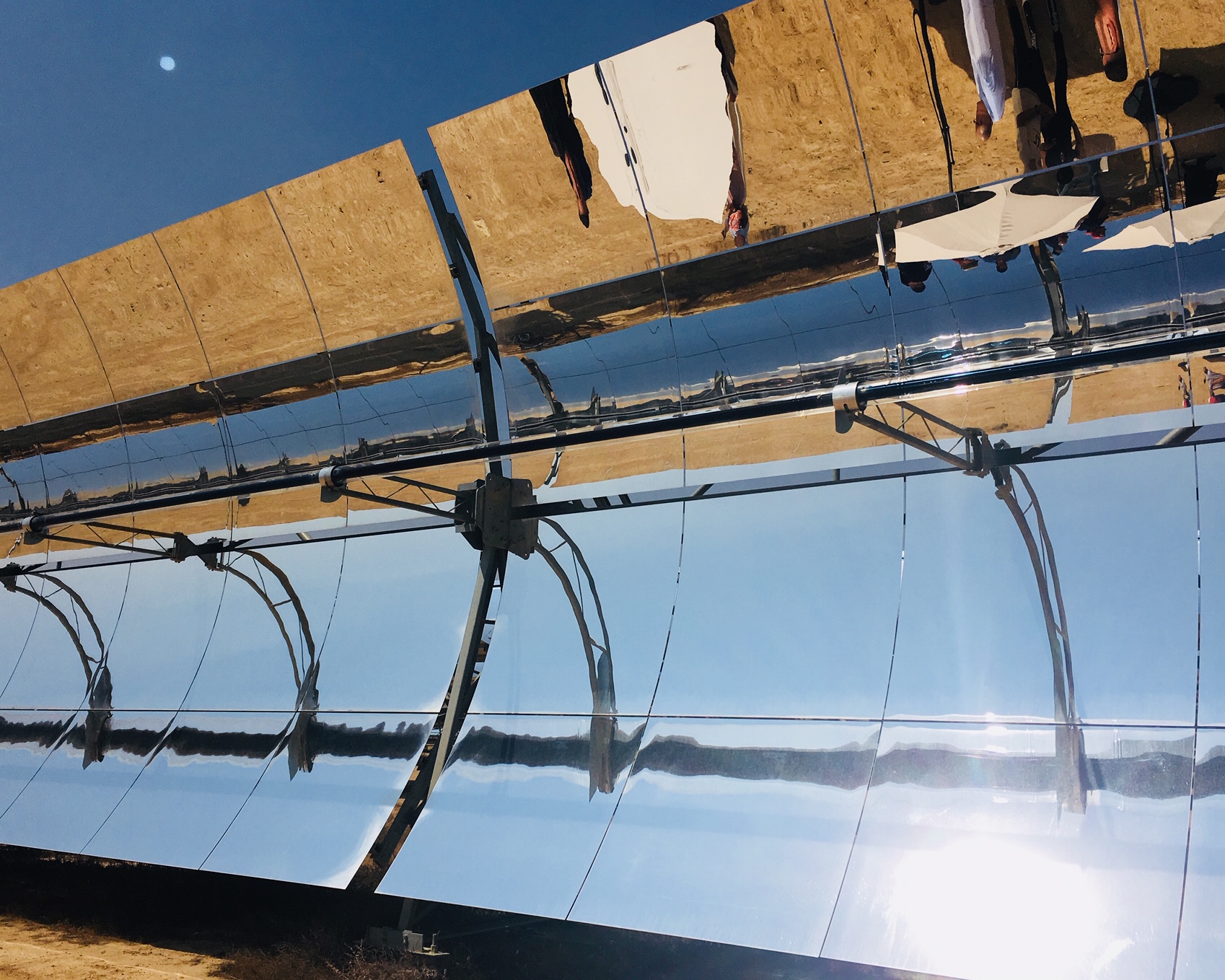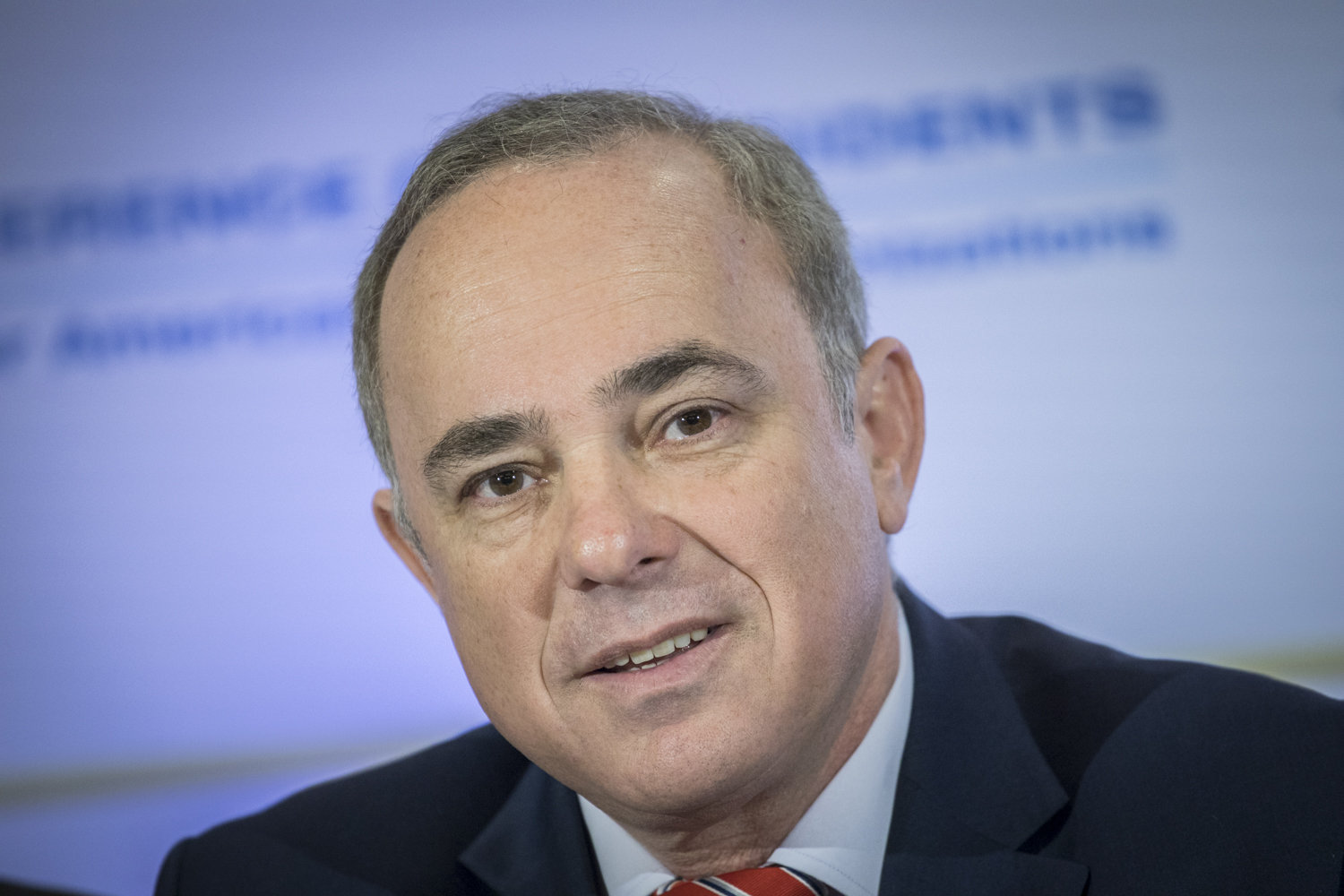
The 4,000-acre development, with a price tag of roughly NIS 4 billion ($1.13 billion), is the largest renewable-energy project in Israel and among the largest in the world.
BY DEBORAH FINEBLUM
(September 5, 2019 / JNS) Driving along the long stretch of Highway 6, deep in Israel’s Negev Desert, you could easily think you are seeing a mirage: thousands of giant mirrors all facing the sun.
But what you are witnessing is Israeli ingenuity at its best—the future of Israeli energy and the fulfillment of many dreams.
These half-a-million concave mirrors catch the heat of the sun—something the Negev has in abundance—to power the new 121-megawatt Ashalim Solar Thermal Power Station.
Just four months into operation, the 4,000-acre solar-energy plant, with a price tag of roughly NIS 4 billion (more than $1.13 billion), is the largest renewable-energy project in Israel and among the largest in the world.Subscribe to The JNS Daily Syndicate by email and never miss our top stories
The joint venture of the Shikun & Binui Group, Noy Fund and Spanish engineering provider TSK, already serves the energy needs of some 70,000 Israeli households.
With nearly 1 percent of Israel’s energy expected to be generated here, the plant represents a giant step towards realizing Israel’s goal of a future powered by renewable energy. It is composed of some 16,000 parabolic troughs and about 500,000 concave mirrors that convert solar energy into steam used to generate electricity. However, one of the most singular features of the plant is its ability to produce power at night, when the sun isn’t shining. The power station uses a thermal-energy storage system, based on molten salt, which allows the plant to operate for approximately an extra 4.5 hours daily at full power after sunset.

“It was exactly six years ago, in September of 2013, that I stood on this hill and had a vision,” said Didi Paz, CEO of Negev Energy, which, as a subsidiary of Shikun & Binui, runs the plant. “I thought of [former Israeli prime minister] David Ben-Gurion, Israel’s founding father, and his dreams for the Negev, and how he would be extremely proud.”
Also on hand to welcome a cadre of international journalists for a tour of the new facility was Israel’s Energy Minister Yuval Steinitz. “We know that public health is as important an issue as providing energy for Israel’s homes and industries,” he told the group.
The country is already making the shift from such polluting energy sources as coal and diesel, he noted, with coal already down from 65 percent to less than 30 percent, and with planned closures of the nation’s coal-burning turbines.

Steinitz said the ministry “used every possible means to increase the scope of renewable-energy production, and by doing so, expects to meet the government goal of 10 percent by the end of 2020.”
He added that “alongside natural gas, renewable energy is of paramount importance in reducing air pollution for the benefit of public health.” It’s a policy, he said, reflected in “Plan 2030,” designed to stop the country’s dependence on polluting fuels. As part of this initiative, Israelis can look for more solar plants of various sizes to be built in coming years.
‘Just the beginning of a revolution in energy’
Such progress relies on such factors as financial backing, of course, but also on the support of the locals.
“It’s really been a community effort,” said Eran Doron, mayor of the Ramat HaNegev Regional Council. Though the project met with some early resistance, he reports that locals are now nearly universally onboard with hundreds of them working as employees at the plant. “It took everyone cooperating—thousands of permits were needed every step of the project—but we all realized this plant is a step toward making Israel greener and cleaner.”
Further privatizing of the industry will help grow Israel’s solar industry, as will the current drop in solar-energy startup costs,” adds Paz. “What’s going on here is just the beginning of a real revolution in Israel’s energy field.”
Also on hand was Naty Saidoff, the majority owner of Shikun & Binui, as well as the incoming chairman of the Israeli American Council. He described the project as “meeting the needs in terms of sustainability and environmental protection, on the one hand, and, on the other hand, in and of itself a profitable project, which has created jobs for many members of the Negev communities.”

Personally, he added, he’s “proud to be given the opportunity to build meaningful mega-projects in Israel and abroad, and plan to promote similar projects in the future.”
“We’re taking the salt and the sun here, and turning it into clean energy and new jobs,” he said. “Isn’t turning curses into blessings what the land of Israel is all about?”
Yosef Abramowitz, solar-energy activist and CEO of Energiya Global, which develops non-polluting energy sources in Africa, is pleased to see new developments in the field. “We need as many of these plants as possible as soon as possible to get rid of the use of fossil fuel,” he said. “It’s also a very good thing they’re diversifying between the solar technologies that use heat versus light.”
So how do Israel’s 21st-century energy challenges differ from other countries’ issues?
“We are isolated here in that, if we experienced an energy crisis, we could not rely on our neighbors to help us out,” Steinitz told JNS. “We know we have to balance the need for energy security, which is a high priority, with the critical need to create sources of renewable healthy energy. Israel needs them both.”